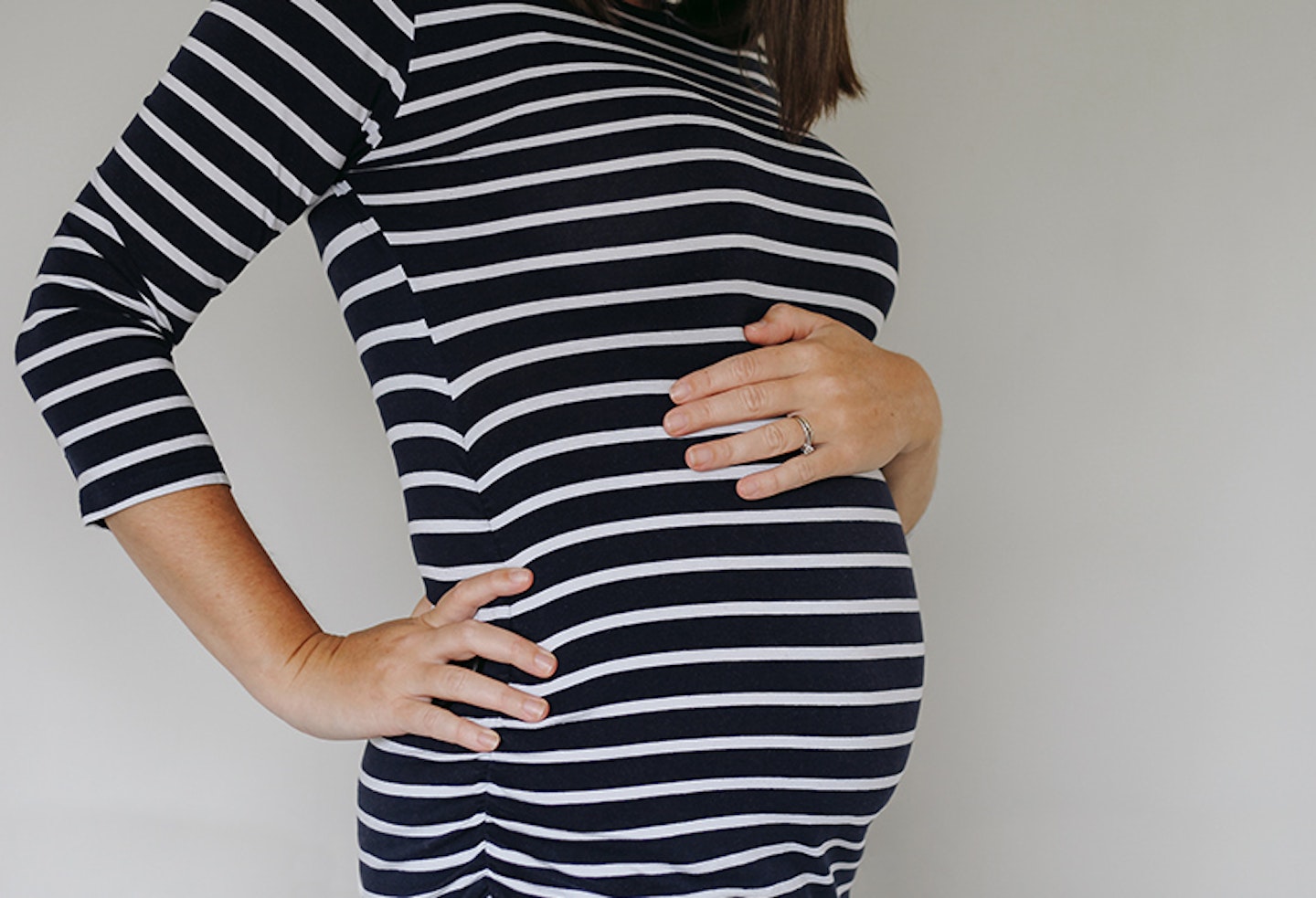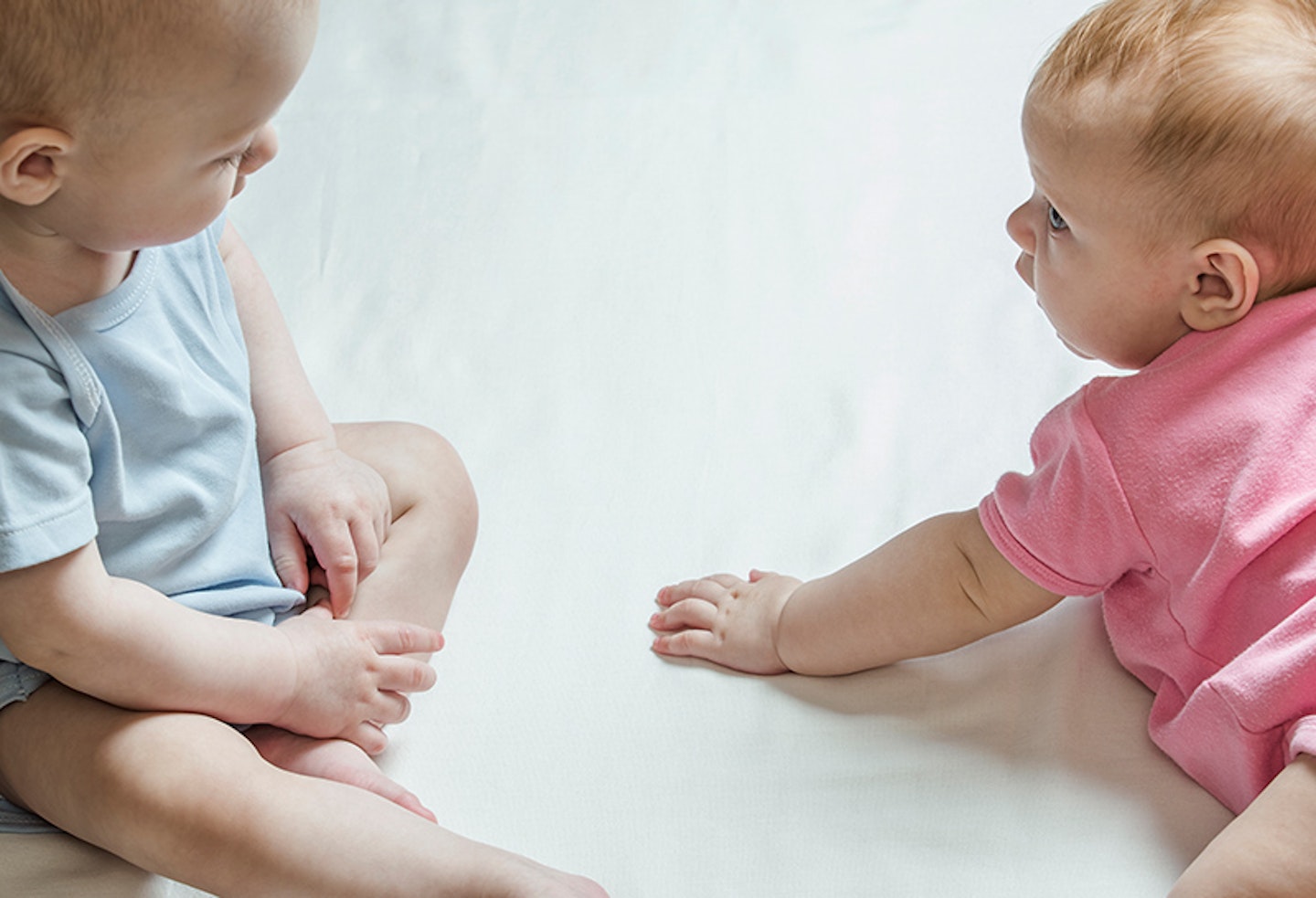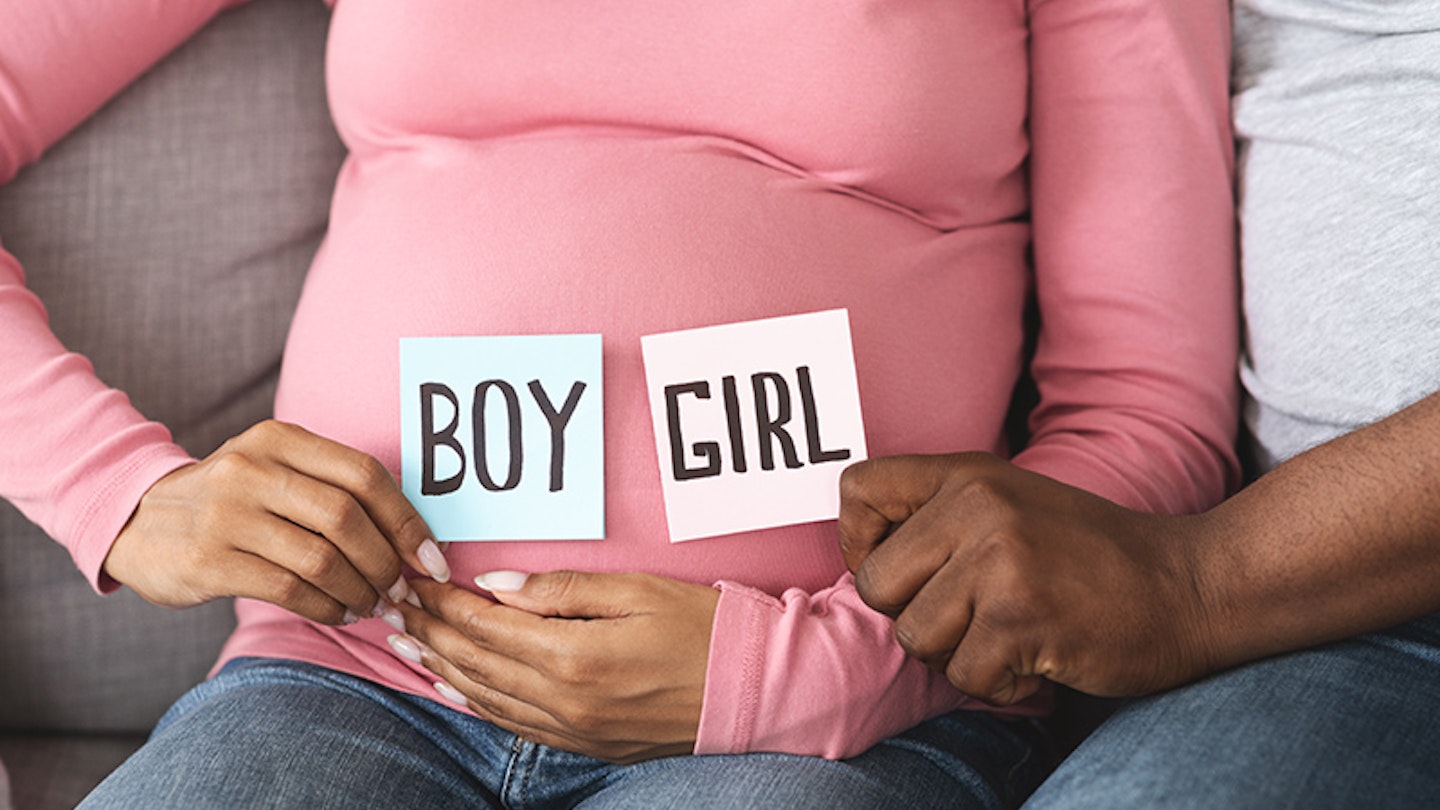There are plenty of hints and clues out there about whether you’re going to have a baby boy or girl. While none of them have been proven (or are medically accurate), they’re fun to read... and you never know, they may turn out to be right!
There are also many theories to help you try and determine whether you'll give birth to a boy or a girl, like the nub theory, which is based on an early scan of the baby’s genital area at the ‘angle of the dangle’, and the Ramzi Theory which is based on the location of the placenta in the first ultrasound during the 6-week scan. However, despite the bold claims, these theories are only supposed to be a bit of fun and not medically proven methods for predicting a baby's gender.
Low heartbeat
If your baby’s heartbeat is lower than 140 beats per minute, you could be having a little boy.
You’re moodier than normal
Feeling grumpy and down in the dumps? It could mean you’re pregnant with a girl.
Sleeping on your left side
Do you keep finding you wake up on your left side? It’s another sign you’re having a boy.
You’re carrying low
If someone tells you you’re ‘carrying low’, it means your bump is lower and your baby lying closer to the pelvis – a sign that some believe suggests your baby’s a boy…
You’re carrying high
…while carrying high could be a sign that you’re having a little girl.
No morning sickness
If this is the case, then you’re very lucky - and potentially carrying a boy!
Bad morning sickness
This isn’t at all pleasant but might mean that you’ll soon have a mini-me that's a girl.
Glossier hair
Got luxurious locks and all-round a better mane than you’ve ever had in your life? It could be a sign that you’ll have a son.
Thin hair
Hair lacking in volume? Apparently, it’s an indication that you’re pregnant with a daughter.
Hairier legs
Found yourself reaching for the razor more frequently? It could mean you need to start thinking of some baby boy's names.
Acne
One gender myth says that bad, spotty skin could mean you’re having a girl.
Frequent headaches
Some believe that suffering from more headaches during pregnancy than normal is a sign that you’re expecting a boy.
Carrying weight in your hips and rear
Suddenly found yourself with a more pronounced derrière? And more rounded hips? It might mean you need to paint the nursery pink.
You’ve got cold feet
A strange one, but having chilly feet could indicate that you’re pregnant with a son. We’re not quite sure why…

No pregnancy ‘glow’
While everyone’s talked about that ah-mazing pregnancy glow you’re bound to experience, you still haven’t come across it. Which could signal that you’re having a baby girl.
You crave salty foods
Hankering after cheese, crisps and really salty meats is another signal that you’re carrying a boy.
You crave sweet things
If you’re eating even more sugary treats than usual then you could have a girl. We reckon it’s a good excuse to indulge a little during your pregnancy.
Your partner has put on weight during your pregnancy
This has to be the strangest of the lot. We reckon your partner packing on the pounds just means that he’s been having one too many sweet treats – but some think it could mean a baby boy is on the way.
Your bump looks like a watermelon
Is this a compliment? You be the judge but apparently, you're having a girl.
If you ate a high calorie diet before you got pregnant
If you had a low-calorie diet and you didn’t have much of an appetite, you’re having a girl.
Holding a ring on a piece of string over your belly and it moves in a circle
Tie a ring you wear every day to a length of cotton thread and hold it above your bump - moving in a circle means you’re having a girl, while swinging side to side means you’re having a boy. However, there’s some debate over which action signifies which gender. If you live in America, you’re more likely to believe the opposite!

If you conceived in winter
If you fell pregnant in the summer, you’re having a baby girl. If you conceive in spring or autumn, there’s an equal chance of having a boy or girl.
Related: Skull theory: can it predict your baby’s sex at 12 weeks?
If someone asks you to hold your hands out in front of you, and you hold them palms facing up
If you hold them out palms facing downwards, you’re having a boy.
If you pick up a key and hold it by its round upper section, you’re having a boy
If you pick the key up by its thinner lower section, it’s a girl.
When you lie down, your baby doesn’t wriggle around too much
If your little one isn't wriggling round much when you're lying on the sofa, you might have a little mini-me on the way. If your baby is a little wriggler when you lie down, it’s a boy!
Of course, these gender predictionsare just for fun. If you want to find out the gender of your baby, ask the sonographer who carries out your 18-21 week scan, but be aware that the answer won’t be 100 per cent accurate. Not all hospitals will let you know your baby’s gender, so you might want a paid-for private scan - ask your midwife for details of what’s available in your area.
Want to play more guessing games? Why not try our gender predictor quiz, or try our Chinese Gender Predictor Tool? [Holly Willoughby also shared her baby gender predictor theory!]{href='https://www.motherandbaby.com/for-you/parenting-the-funny-side/holly-willoughby-s-baby-gender-predictor-theory' }
You can also find out if a ‘galloping horse’ heartbeat mean you’re having a girl or boy.
